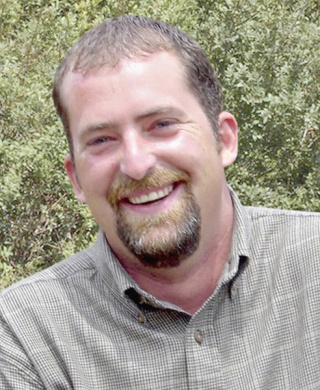For inspiration, Kevin Ranker turned to the rock on Election Day.
Not just any rock — a little white rock with the word “hope” etched in the surface, a good luck charm given to him during his first campaign for political office by a neighbor’s son.
It was in his hand when results came in and he’d been elected to the San Juan County Commission.
“When he gave me that rock he told me, ‘You just have to have hope’,” he said.
Hope appeared to again be on Ranker’s side Tuesday.
The 38-year-old county councilman was on his way to making history today, becoming the first San Juan County resident elected to the state Senate since John Blair 100 years ago.
As of 8:59 p.m., Ranker, a Democrat, had 11,148 votes. Steve Van Luven, a Republican from Samish Island, had 5,464. The Secretary of State’s office was still waiting for results from Skagit County.
Ranker received 5,142 votes in San Juan County to Van Luven’s 2,622.
State senators serve four-year terms. They earn $42,106 a year.
Earlier in the day, Ranker credited supporters and his campaign staff for helping to make an impact with voters across the district.
“We’ve door-belled over 26,000 houses and phone-banked more than 10,000 people,” Ranker said. “The sheer number of volunteers, contributors, time, money, energy and support I’ve received has been really empowering.”
With the victory, Ranker inherits the 40th District state Senate seat which the Democratic Party has had a lock on for more than a decade. He will have big shoes to fill. The position had been held for the past 15 years by Sen. Harriet Spanel, D-Bellingham, who opted not to run for re-election.
But it’ll be no picnic when the legislative session convenes in Olympia early next year, Ranker said. With the economy in a tailspin and the state facing a $3.2 billion deficit, he said crafting a two-year budget will be a difficult balancing act.
The state of the economy, he said, has been foremost in the mind of thousands of people he encountered during the campaign. State lawmakers, he said, must look first at running programs more efficiently and making cuts rather than raising taxes given today’s tough economic climate.
Still, he said his top priority will be finding support and the resources necessary to fully-fund K-12 eduction at the state level. He said he supports a $1.4 billion financial package which, as promoted by education leaders, would raise education spending through staggered steps over the next six years.
“There are shortfalls all over and people are really, really worried,” he said. “But are also worried about losing teachers and the quality of their children’s education. My No. 1 priority will be full-funding for education and finding a way to fill that $1.4 billion gap.”
Van Luven served more than 17 years as a state representative from Bellevue before moving to his native Samish Island. He served seven years as chairman of the House Trade and Economic Development Committee. He was hopeful voters would recognize his experience and said in an earlier interview he would “hit the road running. Immediately.”
But Ranker campaigned like a candidate from an isolated part of the district. He knocked on doors on the mainland, attended every forum possible, produced commercials for YouTube and cultivated endorsements. He was endorsed by Reps. Jeff Morris and Dave Quall, by retiring Sen. Harriet Spanel, and by most of the newspapers in the region, including The Bellingham Herald.
Ranker has served as the legislative lead for San Juan County; he counted among his lobbying successes a lower increase in ferry fares; getting a fixed-wing medical flight stationed on-island through Island Air; getting a monthly VA medical clinic established at Inter Island Medical Center; and helping establish the county Agricultural Resources Committee. His successes on a regional level include protections for the endangered Southern Resident orca population, and lobbying for funding for a year-round rescue tug at Neah Bay.
Ranker said his priorities if elected are ferries, jobs and full funding for education.
In response to a question at a candidates forum in Friday Harbor, Ranker said he supports abolishing the death penalty. He said the prison system consistently is budgeted 5 percent more each year but spends four times more than that. He said the prison system is financially mismanaged; he prefers taking some of that money and investing it in education, mental health services, and drug prevention and treatment.
Van Luven supports leaving the death penalty in place, saying that Washington hasn’t had an execution since 2001 (there have been four since 1993). But he agreed that DNA tests have cleared many people on death row and proved that convictions “have been a racial issue too many times, unfortunately.” He added, “There need to be some changes.”
Both support fully funding education. Van Luven proposes establishing the education budget first, then writing the state budget with the remaining revenue. Ranker supports early childhood and vocational education.
Both also support reinstatement of the Capron Fund, which returns to the county a portion of gas tax revenue. The state uses gas tax revenue for road construction and maintenance. The Capron Fund returns San Juan County’s portion of gas tax revenue to the county because there are no state roads here.
The county and town uses that money for road construction and maintenance. But the state Legislature earlier took San Juan County’s share in the increase in gas taxes and applied it to the state ferries.
Both also support the Growth Management Act.
Van Luven voted for the GMA as a legislator. Without the GMA, “Skagit Valley would have been totally paved over,” he said. That would have had global implications, he said; Skagit Valley farms grow seed that is used around the globe. “Skagit Valley feeds the world,” he said.
— Richard Walker contributed to this report




